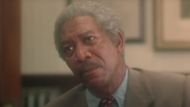The Oscars are one of the most prestigious award ceremonies in the world, and getting recognized at the Oscars means that a movie or actor has earned credibility. Because the awards hold so much merit, it becomes an immense responsibility to present it to the deserving winner. However, over its long course of history, the Oscars have faltered many times. Here are 10 Oscar wins that have remained controversial amongst viewers and critics.
The King's Speech for Best Picture, Life of Pi for Best Cinematography, and other Oscar wins that don't seem right
1. Green Book for Best Picture

Directed by Peter Farrelly, this biographical comedy-drama featured Viggo Mortensen and Mahershala Ali and was based on the true story of African-American jazz pianist Don Shirley and the Italian-American bouncer and actor Frank Vallelonga, who was Shirley’s driver and bodyguard. The movie focused on the Deep South tour of 1962, which was undertaken by Shirley and Vallelonga.
Audiences were surprised when the movie won the Best Picture award at the 91st Academy Awards, as it was up against Roma, which was directed by Alfonso Cuaron and is a poignant drama about the life of a live-in indigenous housekeeper of an affluent Mexican family. The movie was critically and commercially acclaimed and had won the Best Picture at BAFTA and the Golden Lion award at the Venice Film Festival. It was alleged that because it was a Netflix movie, it did not deserve the top award.
2. Bohemian Rhapsody for Best Editing

Starring Rami Malek and directed by Bryan Singer, this biographical musical drama chronicled the life of British rock band Queen’s lead singer, Freddie Mercury. The movie covered important moments of his life, like the creation of the band and the singer’s 1985 performance at Live Aid. Even though the movie was a critical and commercial success, it caused a controversy when it won Best Editing at the Oscars.
The movie had already won the same award at the ACE Eddie Awards, and many people knew that it would win at the Oscars as well. But critics and moviegoers gave backlash as it was not thoroughly edited. Viewers realized that the lip syncing done by Malek was not properly edited, and one particular scene where the band meets their manager was also over-edited. Even the editor himself, John Ottman, gave a statement later on that it was not his best work.
3. Marisa Tomei for Best Supporting Actress

Marisa Tomei gave a fiery performance in the cult classic movie My Cousin Vinny and shocked everyone by taking home the Best Supporting Actress award at the 1993 Oscars. Directed by Jonathan Lynn and starring Joe Pesci and Tomei, this comedy movie revolved around two New Yorkers in Alabama who are charged with a murder they did not commit. Low on cash, one of them decides to call his cousin Vinny, who is a rookie lawyer, who decides to take on the case with some help from her fiancée.
Tomei played the role of Vinny’s fiancée and held her own in an enigmatic performance. However, she did not receive any nominations in other prestigious awards that happened before the Oscars, and experts did not think that a comedic role would get the award, even though she got nominated. When Tomei did win the award, rumors circulated that her name was taken by mistake.
4. Driving Miss Daisy for Best Picture

Directed by Bruce Beresford and starring Morgan Freeman and Jessica Tandy, this comedy-drama is based on a play by Alfred Uhry and revolves around an old Southern lady, Daisy (Tandy), and her African-American driver (Freeman), who develop a bond. The movie spanned over twenty years and had important themes of racial discrimination. Even though the movie was a critical and commercial hit and had all the right themes for an Oscar win, its win did not seem right to the public.
The movie was a favorite at the 62nd Academy Awards and had nine nominations. The controversy was that the movie won at a time when Spike Lee had made Do the Right Thing, which offered a more realistic look at racial issues. The fact that the Oscars did not even include it in the Best Picture category and only gave it one nomination did not sit right with the people. People alleged that Driving Miss Daisy was a sanitized look at the racism, and it therefore won. Even actress Kim Basinger famously spoke up against the bias.
5. Roman Polanski for Best Director

Roman Polanski is one of those directors who is talented in his craft, but his personal life has tainted his name. The director is a figure of divide and controversy, and his win as the Best Director for The Pianist at the 75th Academy Awards only heightened the tensions. Polanski directed the biographical movie, which starred Adrien Brody and centered around the Polish-Jewish pianist and composer, Wladyslaw Szpilman, who survived the Holocaust.
The movie was based on Szpilman’s autobiography and even won the Palme d’Or at Cannes. The film was a critical and commercial success, but when Polanski won at the Oscars, it caused a backlash. The director had fled the US at the time of his win as he was found guilty of being intimate with a minor, and when he learned that the judge would not rule in his favor, he absconded from the States. Over the years, Polanski’s reputation has taken a hit, and he was also expelled from the Academy’s membership.
6. My Octopus Teacher for Best Documentary

There was a time when Oscars looked down upon movies available on Netflix. But that has changed. My Octopus Teacher is a Netflix documentary directed by Pippa Ehrlich and James Reed, which spans over a year and focuses on the bond created between filmmaker Craig Foster and a wild octopus in the South African kelp forest. This time, the Netflix win bagged the Best Documentary award at the 93rd Oscars, much to other experts’ dismay.
Many experts believed that the reason why the film was chosen for the award was not because it was the most well-made movie, but because it was the most widely seen one. As it was available on a popular streaming platform like Netflix, it was the more commercially available option. Critics alleged that other nominees like The Mole Agent and especially Time, which was directed by Garrett Bradley, were more deserving. The film was even a favorite among various publications. However, Oscars left everyone surprised.
7. Robert Benton for Best Director

Kramer vs. Kramer was a poignant and sharp legal drama, which was based on Avery Corman’s novel and starred Dustin Hoffman and Meryl Streep. The Benton directorial revolved around the custody battle of the young son of a divorced couple. The movie was a watershed moment in cinema as it talked about a father’s role in upbringing, equality, and family. The movie was a smash hit, and even though Streep and Hoffman deserved their respective wins at the Oscars, people were surprised over the Best Director win given to Benton.
The controversy happened because Benton was up against Francis Ford Coppola for Apocalypse Now and Bob Fosse for All That Jazz. Critics were already unhappy when Benton’s movie won the Best Movie award, leaving behind Coppola’s influential movie. But when Benton won the award for the director’s seat, the people and critics were not happy over Coppola’s snub. Over the years, audiences have still been miffed that Coppola and his movie were ignored at the Oscars.
8. Kevin Costner for Best Director

Another controversial Oscar win for Best Director happened when Kevin Costner took home the award for Dances With Wolves over Martin Scorsese’s Goodfellas. Costner’s directorial was an epic Western movie, which was an adaptation of Michael Blake’s novel. It centers around a Union Army lieutenant, John J. Dunbar, who embarks on a quest to the American frontier and develops a bond with the Lakota tribe of American Indians.
The movie was a critical and commercial success and was nominated heavily at the Oscars. Its patriotic and profound themes made it the jury’s favorite, and Costner was therefore the winner. However, audiences were annoyed that Scorsese was not honored for one of his most well-made movies. The movie was seen as Scorsese’s finest directorial achievement and was lauded for its gritty look into the mafia. However, Costner took away the trophy, much to experts’ dismay.
9. The King’s Speech for Best Picture

Starring Colin Firth and directed by Tom Hooper, this historical drama revolves around King George VI (Firth), who wants to overcome his stammer and meets Lionel Logue (Geoffrey Rush), an Australian speech and language therapist. The movie focusses on their friendship and George’s first wartime radio broadcast, when Britan declared war on Germany in 1939.
The movie was a critical and commercial success and was praised for its visuals, direction, and acting. And the movie got 12 nominations at the Oscars. However, viewers were not happy when it won Best Picture, as it was up against The Social Network and Black Swan, which are consistently considered some of the most pathbreaking movies in cinema. Over the years, people have now contested that Christopher Nolan’s Inception should have won instead, as its premise was truly unique and complex.
10. Life of Pi for Best Cinematography

Directed by Ang Lee and based on a novel by Yann Martel, this adventure drama revolves around a majestic Bengal tiger and a teenage Indian boy, Pi, who are the only two survivors of a shipwreck and are stuck on the same lifeboat. The two stay lost in the Pacific Ocean for 227 days, and the movie revolves around their bond. The movie was a critical and commercial success, but its win for the Best Cinematography prize at the 85th Oscars became a matter of contention.
However, critics and viewers were not happy as the movie was made entirely through digital effects, and experts believed that it therefore did not deserve the honor. Many people debated about the blurring of lines between visual effects and cinematography and whether this blurring was detrimental to classic cinematography. Even veteran cinematographer Christopher Doyle was not happy with the win and bluntly spoke about how unworthy the win was.
